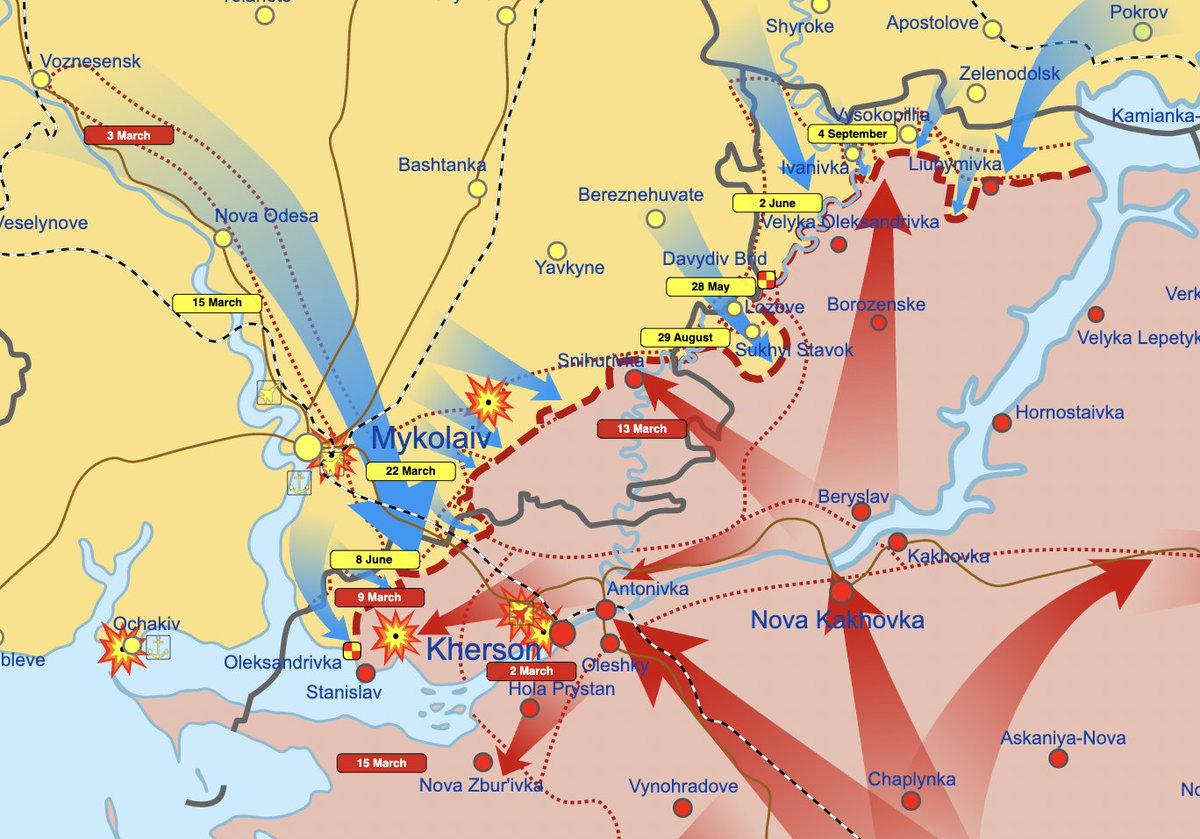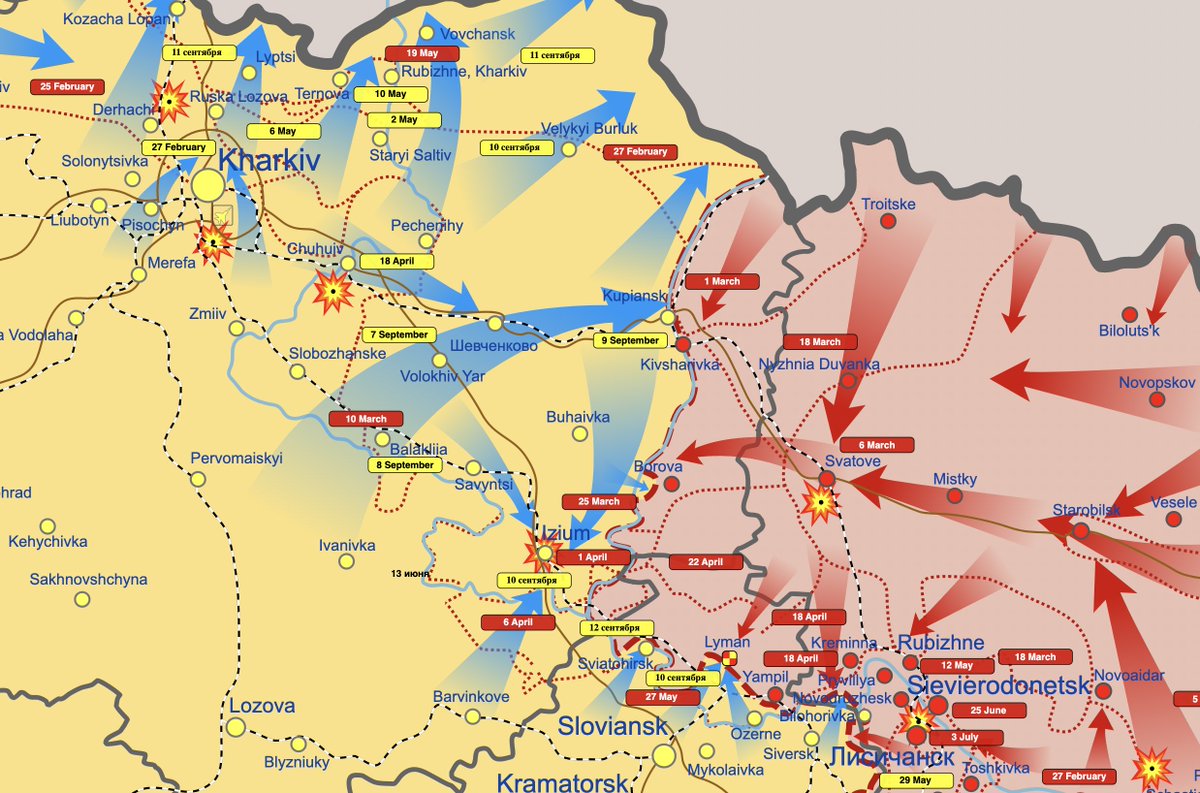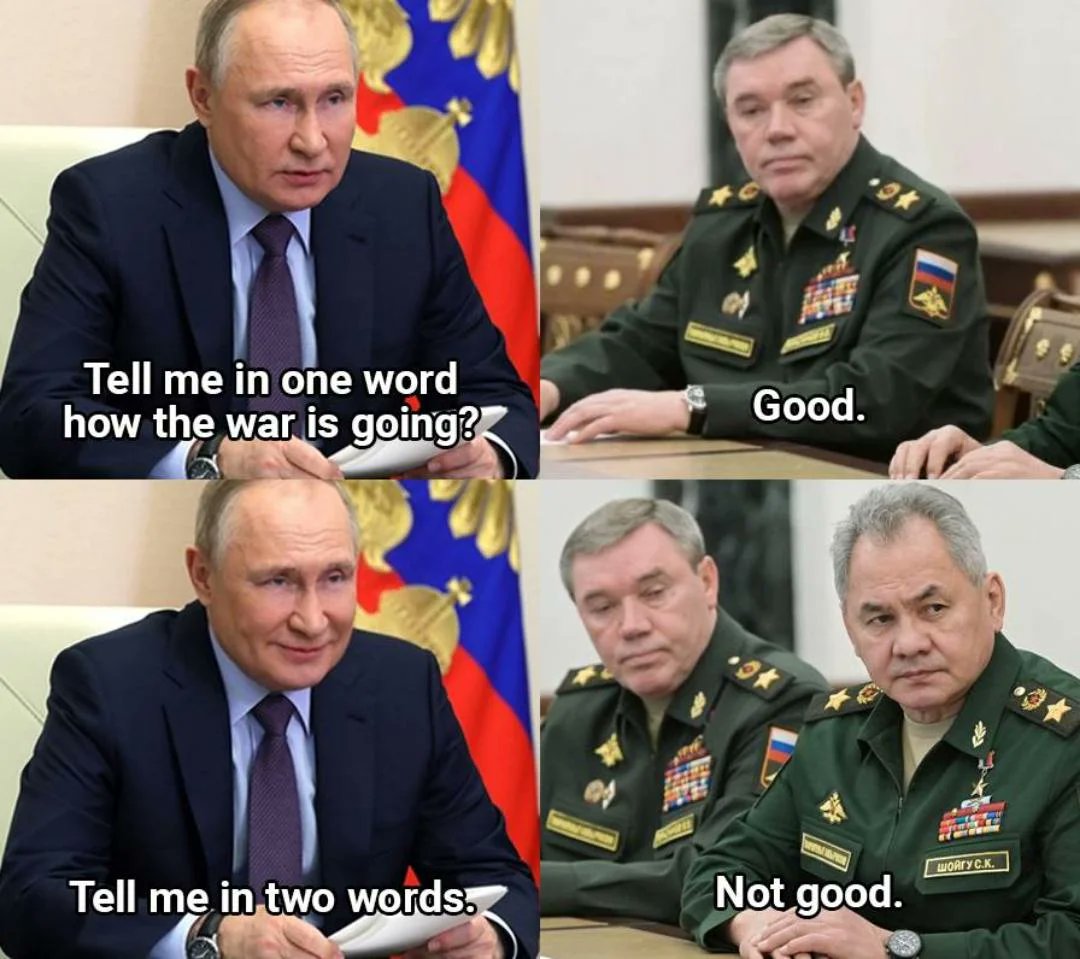
1/ There'll be lots of commentary this morning about the logistical difficulties of Putin's announcement of a partial mobilisation. But I thought I'd add a few points, based on my own personal observations, of what it means politically and for the troops already in Ukraine. 

2/ First, politics: Putin was clearly under a lot of pressure to react to Russia's defeat east of Kharkiv. This is very likely his way of responding to increasingly strident demands. IMO, this shows that he fears the nationalist flank more than the general public.
2/ Second, morale. As I've previously documented from Russian soldiers' accounts and intercepted phone calls published by Ukraine, many Russian soldiers are badly demoralised and want to go home. 20-40% of the men from some units have reportedly quit.
https://twitter.com/ChrisO_wiki/status/1555312718781071362
3/ But the Russian army has been making that increasingly difficult. Some soldiers have reportedly been kept in Ukraine despite their contracts running out in May. Putin's new decree effectively bans anyone leaving (except on certain narrow grounds, of which more later).
4/ This move will be very bad for morale. Soldiers whose contracts were due to expire this autumn will now be stuck in the army indefinitely. This is a big deal: a great many signed up for the economic benefits, not to fight and die.
5/ Putin again tried to justify the war as being in 'defence' of Donbas and 'Novorossiya' (Zaporizhzhia and Kherson). But soldiers' own accounts show that many simply don't believe this and don't know why they're in Ukraine. Again, bad for morale.
6/ So to a significant extent, I think this is about stopping the bleeding of the Russian army. The stats for killed and injured don't capture the large numbers who have simply quit and are just as much hors de combat as someone who's been killed or crippled.
7/ Third, effectiveness. Russia went into this war with a Rumsfeldian lightweight army and quickly found it didn't have enough troops. The impact on the ground has been clear. But a less obvious result has been a lack of rotation - allowing the troops to rest away from the front.
8/ This is very important because well-established evidence shows that combat effectiveness falls off quite rapidly - within 140-180 days. Many have now been fighting for more than 200 days. From John Keegan's 'The Face of Battle': 

9/ Commentators have suggested that the newly mobilised troops could take months to arrive. I think it might actually be quicker than that. I suspect that one of their main purposes will be to allow frontline troops to be rotated and rested for a while.
10/ Winter is coming, and with it, offensive operations are likely to be at a low ebb. Both sides will be entrenching themselves within the next few weeks until the thaw comes next February-March. That's not a bad time to do a rotation.
11/ You also don't need to be all that well trained to defend a position. Ukraine's territorial defence forces proved that last spring in the defence of Kyiv. Russia's soldiers are poorly trained anyway, so giving new ones a couple of weeks' basic training isn't much different.
12/ There is also a huge rear area - the occupation zone is the size of Portugal - where Ukrainian partisans and special forces can operate without much trouble. Again, you don't need to be well trained to man a roadblock or patrol a route.
13/ Russia's crappy logistics are likely due in part to a lack of personnel to do basic things like drive trucks and handle cargos (no palletisation, as @TrentTelenko and others have noted). Using contract soldiers to do this is a waste of resources.
14/ Every contract soldier who can be freed up or temporarily replaced by a newly mobilised man is a soldier who can be rested, maybe retrained, and then sent back to the front line, where it most counts.
15/ So in short, I see this move not so much as being about creating a brand new army for Russia but as creating political cover for Putin and enabling him to rest and reorganise his current depleted army over the winter. /end
• • •
Missing some Tweet in this thread? You can try to
force a refresh








